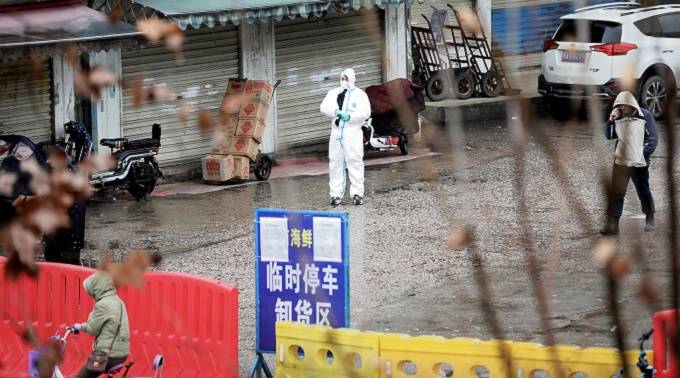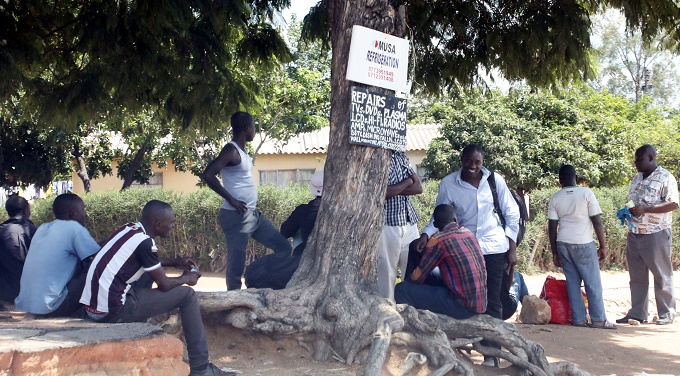Animal rights groups’ unjustified use of coronavirus outbreak to ban wildlife trade

Emmanuel Koro
The Western animal rights groups’ unfortunate use of the coronavirus pandemic to call for the ban on wildlife animal trade is an attack on the wellbeing of wildlife-rich and pro-sustainable use African states, particularly those in Southern Africa.
The United Kingdom-based Born Free Foundation has taken the lead towards collapsing Africa’s wildlife economy through leading a campaign to influence international health bodies to introduce an international law to end wild animal trade.
“With nearly 100 000 cases of coronavirus currently reported worldwide and in excess of 3 000 deaths, Born Free is calling on the World Health Organisation (WHO), Office of International Epizoologie (OIE) and the United Nations Environment Programme (UNEP), to encourage the introduction and enforcement of legislation to close wildlife markets,” the organisation said recently.
A statement on the WHO website says that the first human cases Covid-19, the coronavirus disease caused by SARS-CoV-2, were first reported from Wuhan City, China at Huanan Wholesale Seafood Market in December 2019. The market sells seafood, farmed and wild animal species.
Unlike Western animal rights groups who are recommending the ban in wildlife trade, the most authoritative world body on health matters, the World Health Organisation (WHO) didn’t call for a ban on international wildlife trade. Instead, the WHO’s March 26, 2020 recommendations to reduce risk of transmission of “pathogens from animals to humans in live animal markets or animal products markets” place a lot of emphasis on general hygiene measures, including regular hand washing with soap and water “after touching animals and animal products.”
What is clear is that animal rights groups’ agenda is to always oppose humankind’s use of wildlife. Far from caring for human life, they are using the coronavirus pandemic to protect their inhumane interests and values that humankind has no right to use wildlife, even for medicinal, food, conservation and economic purposes.
Without sustainable and legal trade in wildlife and its products, African countries will remain incapable of generating enough income for conservation and development. With most of their budgets being unexpectedly diverted towards fighting the life-threatening coronavirus pandemic, wildlife-rich African countries more than before, now desperately need to be allowed to generate conservation and development income through trade in their wildlife and its products. The products range from dust-gathering stockpiled tonnes of rhino horn and ivory.
With Botswana having cancelled hunting for the 2020 hunting season because of the coronavirus-linked travel bans, it means less income can be generated for wildlife conservation.
Even though other Sadc countries such as Namibia, South Africa, Zambia and Zimbabwe might still be clinging to the hope that they will hunt this year, the money that they might generate would be far less than what they would earn in a normal coronavirus-free hunting season. What this means is that it’s going to be business unusual for Southern Africa’s wildlife economy this year.
This even makes it more urgent and necessary for the UN Convention on International Trade in Endangered Species of Fauna and Flora (CITES) to see the danger that diminished earnings from wildlife will pose to conservation and development in Africa going forward.
As humankind strives to save itself from the coronavirus pandemic that has caused mass deaths, governments in Southern Africa will this time predictably put more money towards saving human lives than wild animals. It’s going to take a very long time for Sadc countries and other African countries to recover from this coronavirus-linked economic disaster.
For the first time as far as one can remember, Moody’s crediting rating agency has downgraded South Africa to junk status. South Africa is one of the most prosperous African countries. So where to now for other economically weak but wildlife-rich Southern African countries? What this means is that the UN CITES agency member countries should start seriously thinking of the need to support the lifting of the ban on international ivory trade in ivory and rhino so that revenue can be generated for wildlife conservation.
The coronavirus pandemic’s economic impacts might actually be far-reaching to the extent that some Sadc governments can be forced to cut-down on their anti-poaching budgets and personnel, against a background where money-starved poaching syndicates could be geared to increase their rhino and elephant poaching activities in Africa.
The coronavirus pandemic has changed the world in ways that no one could ever imagine. In response, the world needs to start making meaningful and sensible changes for the good of both African people and their wildlife. Failure to make these urgent reforms might make us kiss goodbye to the wellbeing of African people and their wildlife.
Therefore, it would make sense that the UN agency CITES starts frankly consulting with its member countries to consider the resumption of ivory and rhino horn trade, ahead of the 19th CITES meeting to be held in Costa Rica in 2022. Southern African countries want wildlife trade, not aid. The Western super powers, influenced by animal rights groups whose votes they need during elections have always denied elephant over-populated Southern African countries’ wish to trade in their stockpiled ivory and earth-shattering quantities of rhino horn worth trillions of US dollars.
When people don’t benefit meaningfully from wildlife, as is the current case, they would rather poach it. The other lesson learnt is that the ban on international trade in ivory and rhino horn has never saved a single elephant or rhino. While the rhino horn and ivory trade bans are in force, the media is awash with cases of elephant and rhino poaching weekly, including seizures of illegally traded ivory and rhino horn.
The UN agency CITES has about two years to correct this half-century-old mistake by starting negotiations for the resumption of ivory and rhino horn trade.
The coronavirus-driven urgent need to start negotiations for ivory and rhino horn trade to generate much needed income to save Southern African wildlife comes at a time when almost all pro-sustainable use Southern African countries, except Mozambique, have gone on reservations in protest of CITES’ continued unreasonable blockade on international trade in live wildlife and products.
Accordingly, on November 26, 2019 eight Sadc countries made formal declarations refusing to accept more of CITES’ unfair, harmful and prohibitive trade rules dealing with wildlife and wildlife products. They dismissed the CITES voting process and prohibitive trading rules as “tainted, rigged and not free and fair” and protested by going on reservations. According to various articles of the Convention, a reservation over a particular species means that a protesting country would no longer have to adhere to CITES rules with respect to trade in a particular species. They would no longer be restricted from trading in the species and their products with other countries that also claim the same reservation, or non-members of the Convention. The reservations were on the elephant, giraffe and rhino.
Meanwhile, very reliable sources from Southern African governments recently said that the UN CITES agency has since “taken note of the reservations.” This means that CITES considers the eight Southern African countries’ reservations on the elephant, giraffe and rhino valid and correctly submitted.
Sadly, some animal rights-influenced super power Western nations are lobbying for the reversal of the reservations. This issue will be discussed at the CITES Animals Committee to be held in June 2020 via a teleconference, because of coronavirus travel bans.
Emmanuel Koro is a Johannesburg-based international award-winning journalist who has written extensively on environment and development issues in Africa for the past 27 years.











Comments